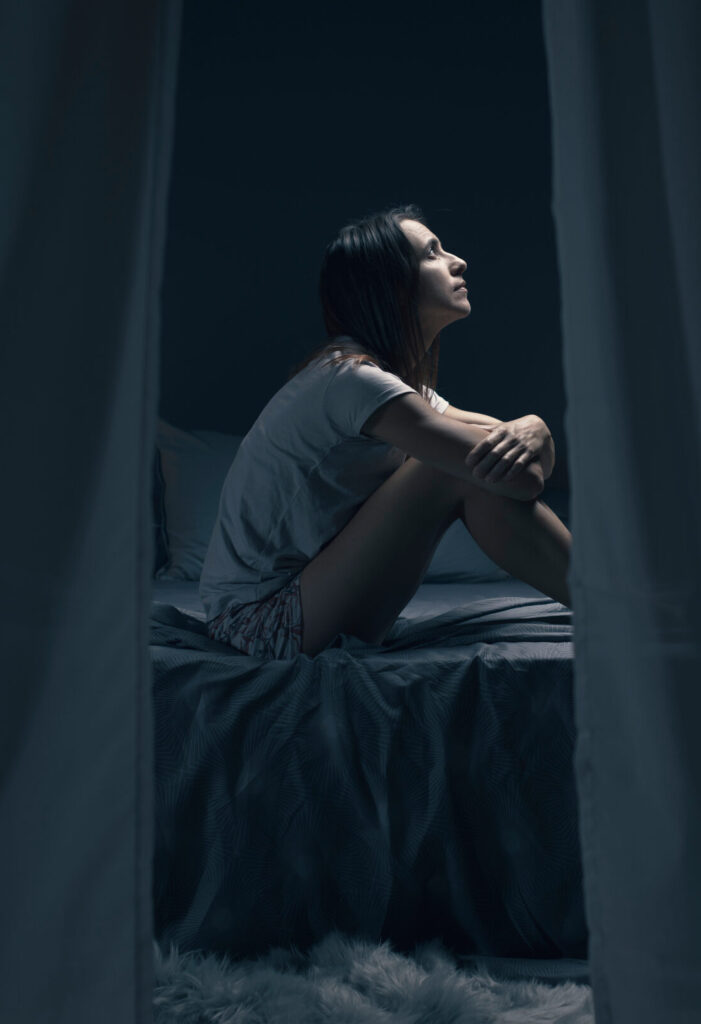Insomnia

What is Insomnia?
People with insomnia have trouble falling asleep, staying asleep, or both. Short-term insomnia is when a person has trouble sleeping for a few days or weeks. This is usually related to temporary stress and may improve on its own. Long-term or “chronic” insomnia is when sleep problems last for 3 months or longer.
What are the Signs/Symptoms of Insomnia?
Common signs/symptoms of insomnia include having trouble falling or staying asleep, feeling tired during the day, memory impairment, decreased mental clarity, irritability, depression, general anxiety, and fixed anxiety regarding lack of sleep.
How do we Diagnose and Treat Insomnia?
For most common cases, testing is not required to diagnose an individual with insomnia. It is a good idea that you keep a daily log (sleep diary) for 1 to 2 weeks, where you keep track of how you sleep each night. You can wait until you meet with one of our providers, or you can proactively start journaling prior to your first in-person consultation.
In some cases, people do need special sleep tests, such as “polysomnography” or “actigraphy.”
- Polysomnography (or sleep study) — Polysomnography is a test that usually lasts all night. It can be done in a sleep lab or at home. During the test, monitors are attached to your body to record movement, brain activity, and breathing.
- Actigraphy — Actigraphy is a test that records activity and movement with a monitor or motion detector that is usually worn on the wrist. The test is done at home, over several days and nights. It will record when you fall asleep and how much vital sleep you are able to achieve.
The goal of treatment is to pinpoint stressors, concerns, anxieties, or cognitive behavior functions and to overcome them for the purpose of better, restful sleep. If your insomnia is related to stress, pain, or another medical problem, treating that problem can help you sleep better. If you have chronic insomnia, or insomnia that lasts longer than 3 months, there are specific treatments that can help. They include:
- Cognitive Behavioral Therapy (CBT-I) — Cognitive Behavioral Therapy for insomnia involves working with a counselor or a therapist over the course of several weeks. You will work on understanding your insomnia, learning techniques and behavioral changes to build better sleep habits, changing negative thinking patterns that can make insomnia worse, and learning relaxation exercises that can help.
- Medicines — There are also medications and sedatives that can help with sleep. The trial of a sedative can be considered after, or in conjunction with, CBT-I. If your insomnia is related to problems like depression or anxiety, it can help to treat those problems directly.
- Developing Good Sleep Hygiene — Part of CBT-I involves learning about “sleep hygiene,” or habits and techniques that one can develop to increased the chances of a restful night’s sleep. These tips can be helpful for people who don’t have chronic insomnia but who occasionally have trouble sleeping.
Good Sleep Hygiene Looks Like This:
- Sleep only long enough to feel rested, and then get out of bed.
- Develop a consistent sleep schedule by going to bed and getting up at the same time daily.
- Do not try to force yourself to sleep. If you can’t sleep, get out of bed and try again later.
- Have coffee, tea, and other caffeinated foods and beverages only in the morning.
- Avoid alcohol in the late afternoon, evening, and near bedtime.
- Avoid smoking.
- Keep your bedroom dark, cool, quiet, and free of reminders of work or other things that induce stress.
- Get plenty of physical activity, but avoid heavy exercise right before bed.
- Avoid looking at phones, computer screens, television screens, or any device that gives off light at least 1 hour before bed.
